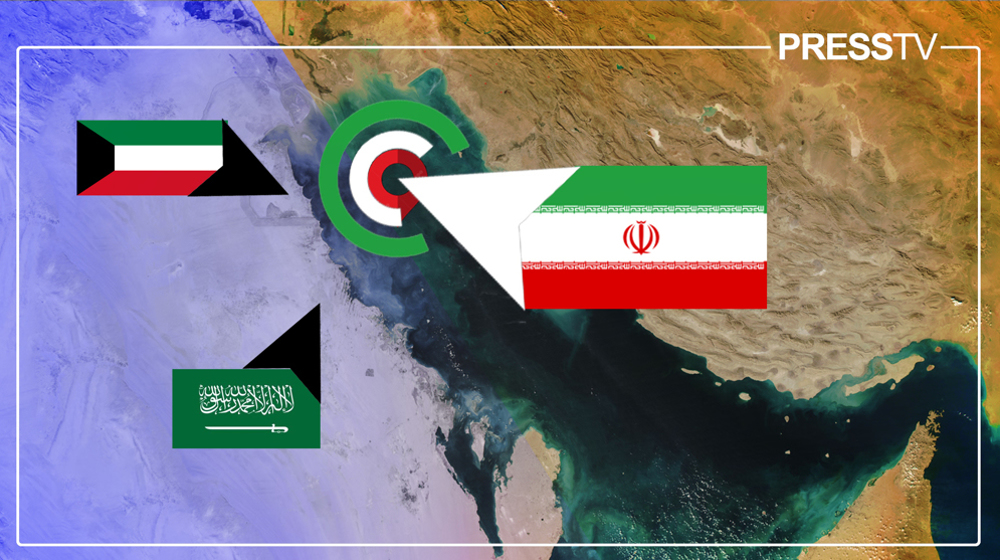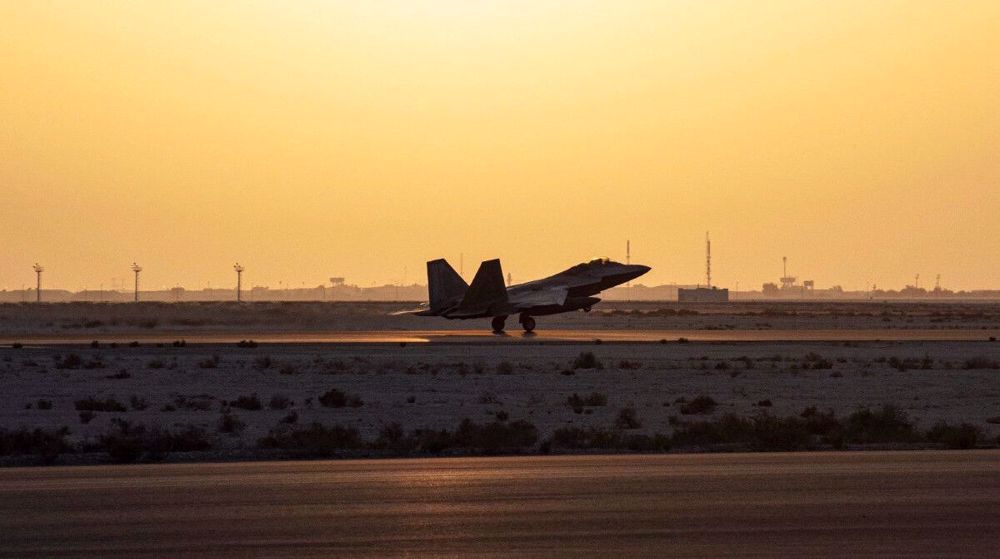Blockade against Qatar amounts to 'bloodless declaration of war': Minister
Qatar says the Saudi-led blockade against Doha is a "bloodless declaration of war," a day after the Persian Gulf Arab country rejected as "unreasonable" the demands presented by Saudi Arabia and its allies to end the unprecedented diplomatic row with the emirate.
Qatari Defense Minister Khalid bin Mohammad al-Attiyah made the remarks in an interview with the UK-based Arabic-language al-Araby al-Jadeed newspaper published on Friday.
He added that what Saudi Arabia, the United Arab Emirates, Bahrain and Egypt had done against Qatar, including closing the land, sea and air borders, were in fact "harming the citizens and damaging the social fabric" of the Persian Gulf.
Attiyah arrived in the Turkish capital Ankara to hold talks with his Turkish counterpart Fikri Isik and the country's President Recep Tayyip Erdogan on the issue of a Turkish base in Qatar.
"Qatar and Turkey maintain historic ties and my visit comes in the context of boosting defense cooperation between the two countries," Attiyah said in Ankara.
The unprecedented crisis in the Persian Gulf region unfolded on June 5, when Riyadh, Manama and Cairo cut ties with Doha, officially accusing it of "sponsoring terrorism" and destabilizing the region. Qatar, however, has slammed the measures as unjustified, saying they are based on false claims and assumptions.
On June 24, Qatar officially announced that the four countries had sent it a list of 13 wide-ranging demands and given it 10 days to comply with them or face unspecified consequences.
The demands include shutting down the Doha-based Al Jazeera broadcaster, scaling back cooperation with Iran, closing the Turkish military base in Qatar, and paying an unspecified sum in reparations. Qatar later said the demands were "unrealistic, unreasonable and unacceptable."
To further pressure Qatar, Saudi Arabia has totally closed its land border with its tiny neighbor, through which much of Qatar's food supply crossed. Iran and Turkey are now providing Qatar's required food supplies.
'Turkey base closure not on agenda'
Throughout the current standoff between Doha and the Saudi-led bloc, Ankara has resisted pressure to close its military base in the emirate.

"The current issues between the (Persian Gulf) countries, who are brothers, must be resolved soon on the basis of a sincere dialogue and respect for Qatar's rights," the Turkish defense minister said on Friday.
“Re-evaluating the base agreement with Qatar is not on our agenda,” Isik further said in a televised interview, adding that Turkey’s presence in the emirate should be seen as a “benefit for the whole Persian Gulf.”
President Erdogan, for his part, has already said the sweeping demands were "against international law", and described the Saudi-led bloc's demand for the withdrawal of Turkish troops from Qatar as "disrespect to Turkey."
The punitive measures against Qatar have drawn condemnation from rights groups, including Amnesty International, which says the diplomatic dispute has been toying with thousands of lives.
The coordinated move against Doha is spearheaded by Riyadh, which often manages to have its vassal states fall into line. Saudi Arabia itself is known as the main sponsor of the violent Wahhabi terrorists it has accused Qatar of supporting. Some analysts believe the Saudi anger is rather because Qatar acts more independently of Riyadh, including in its relations with Iran.
VIDEO | Iran marks defeat of US military operation in Tabas Desert
VIDEO | Press TV's news headlines
US troopers crack down on pro-Palestinian protests at University of Texas
VIDEO | German warship departs Red Sea as EU 'naval mission' fails
VIDEO | Palestinians inspect rubble of destroyed building in Rafah
Yemeni forces strike US, Israeli vessels in fresh pro-Palestinian operations
‘Say no to Biden’: US college being pressed not to endorse genocide
VIDEO | UN: Alarming food insecurity crisis grips Afghanistan














 This makes it easy to access the Press TV website
This makes it easy to access the Press TV website